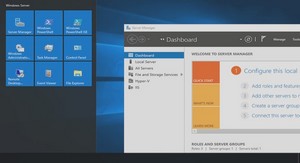……..
What Is Group Policy?
Use Group Policy to:
• Apply standard configurations
• Deploy software
• Enforce security settings
• Enforce a consistent desktop environment
Group Policy enables IT administrators to automate one-to-many management of users and computers
Local Group Policy is always in effect for local and domain users and local computer settings
What Are ADM and ADMX Files?
ADM files are:
• Copied into every GPO in SYSVOL
• Difficult to customize
ADMX files are:
• Language neutral
• Not stored in the GPO
• Extensible through XML
What Is the Central Store?
The Central Store:
• Is a central repository for ADMX and ADML files
• Is stored in SYSVOL
• Must be created manually
• Is detected automatically by Windows Vista or Windows Server 2008
What Are Multiple Local Group Policy Objects?
• One layer of computer configurations that applies to all users
• Layers apply only to individual users, not to groups
• There are three layers of user configurations:
• Administrator
• Non-Administrator
• User-specific
Options for Modifying Group Policy Processing
Five methods to modify GPO default processing:
• Block inheritance
• Enforcement
• Filtering using security groups or WMI filters
• Disabling GPOs
• Loopback processing
Demonstration: Configuring Group Policy
Object Links
In this demonstration, you will see how to:
– Create and link GPOs to different locations within AD DS
– Disable a GPO link
Demonstration: Configuring Group
Policy Inheritance
In this demonstration, you will see how to:
– Block GPO inheritance
– Enforce GPO inheritance



